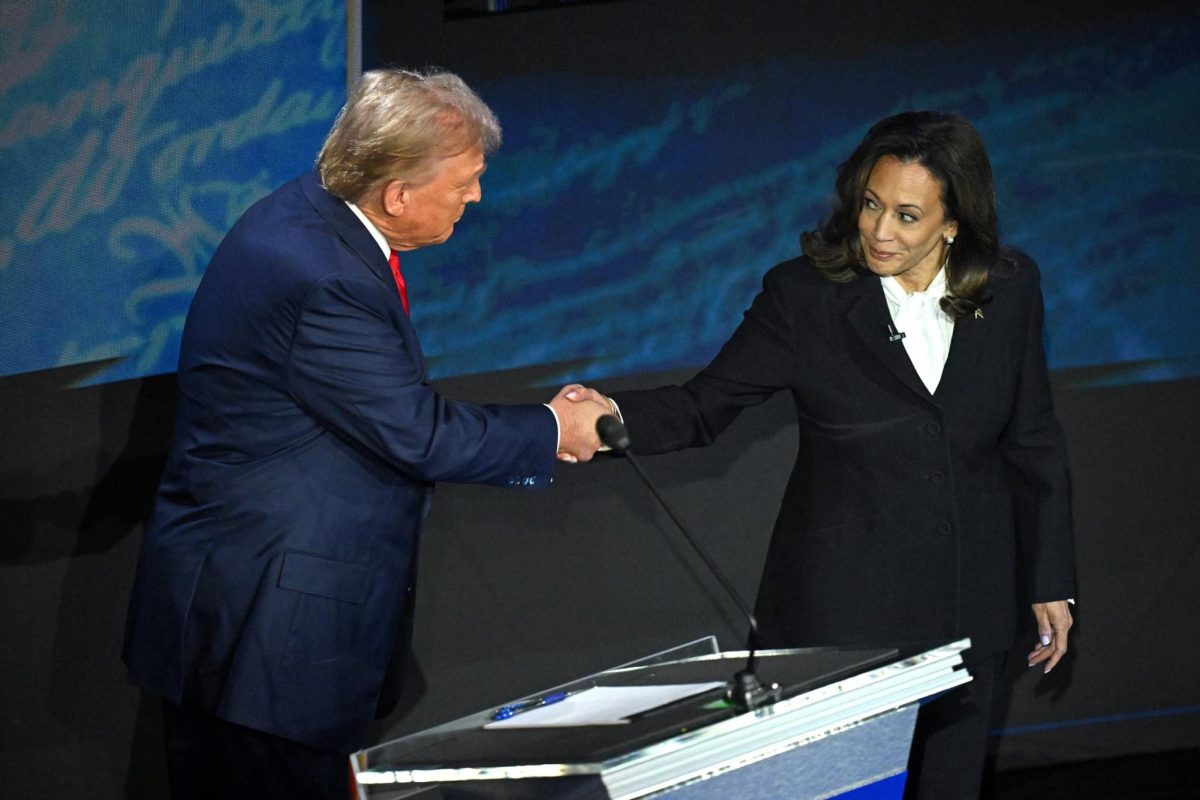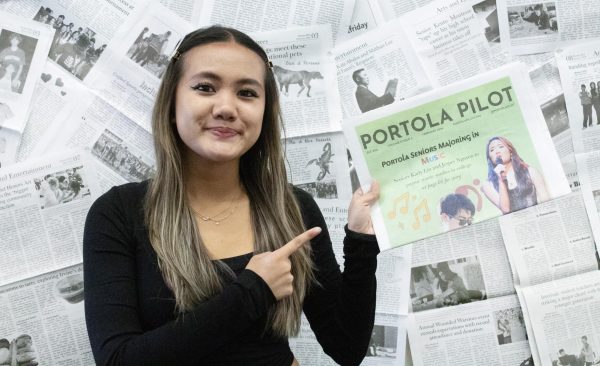Vice President Kamala Harris and former President Donald Trump participated in a 90-minute debate hosted by ABC News on Sept. 10. Reaching an estimated 67 million Americans, the debate took place in the National Constitution Center in Philadelphia, according to NBC News.
The debate began with what moderator David Muir described as voters’ “number one issue”: the economy. Harris began by discussing her plans to provide a $6,000 child tax credit and $50,000 tax deduction to first-time small business owners. By contrast, Trump argued for raising tariffs and implementing stricter immigration controls.
While protectionary tariffs may help businesses enter global markets, it could decrease consumer buying power, according to economics teacher James Ferrel.
“I do worry that Trump’s policies may be a little extreme on the tariffs, and we have to have guarantees consumers won’t be impacted by that,” Ferrel said. “In regards to Kamala Harris’s tax deductions, we need to make sure we are enforcing these laws so we won’t have the same mistakes with the loans we gave small businesses during the pandemic, because there were some organizations that took advantage of those.”
Both candidates then discussed abortion laws. While Harris advocated for the reinstatement of Roe v. Wade, Trump asserted abortion laws should be left up to the states to decide. However, both candidates seemed to be appealing to their bases, according to junior Alex Lingerfelt.
“Both candidates were trying to accuse the other of being huge extremists when I believe neither are,” Lingerfelt said. “I think Trump identified correctly it was dividing the nation, but would go on big rants about how certain states support the execution of the baby after birth, which was very divisive and often incorrect.”
The debate transitioned into immigration policy, where both candidates eventually deviated into discussing campaign rally sizes. According to Passion Civics teacher Jon Resendez, Harris appeared more empathetic, but neither candidate answered the question directly.
“With Trump, there’s a typical thing where he comes on very strongly, although immigration is his most coherent policy plan from 2016 to today,” Resendez said. “I think Harris tried to avoid that conversation. What she did pivot to is that there have been immigration bills in Congress, and Republicans have opposed those immigration bills.”
In the closing statements, Harris articulated a vision focused on the future, promising to build an “opportunity economy” to support the American middle class. Trump concluded by raising concerns over Harris’s inaction and the country’s global and economic pitfalls.
In the 2020 election, President Biden won by fewer than 44 thousand votes in Arizona, Georgia and Wisconsin, according to NPR. This year, the race to win swing states could be even tighter.
“It’s hard for me to say the impact on swing voters and undecideds, but I think it was a good night for Harris overall,” Resendez said. “I don’t know how many swing voters and undecideds are actually watching, but I do know that they are paying attention to the spin of the debate afterwards.”
The vice presidential debate will be held on Oct.1 in New York City, NY





